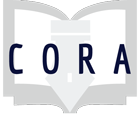A 90 minute session with first year students in the School of Economics and Business Administration. Covered areas included overview of difficulties in searching and algorithm bias. Emphasis was on the importance to being critical consumers of information and understanding searches are not neutral.
Assignments
Students will participate in a game-based learning scenario based on Net Neutrality. Participants will each assume the role of an individual vested in the issue (Chairman of the FCC, President of the U.S., CEO of telecommunications company, or Supreme Court Justice). They will form alliances, discuss issues, formulate a strategy, and briefly share their viewpoint with the hope of winning the game. The learning experience is student lead.
Created by M. Brown-Salazar Saint Mary's College of CA This lesson was developed to have graduate level students explore social justice issues in information found on the internet. It is based on Dr. Safiya Noble's work: Algorithms of Oppression. Simplified, we asked students to consider that when we seek information, we need to examine the perspective/privilege of the voices/sources of information and identify/understand whose voices are represented and whose voices are missing and how that impacts/influences our understanding.
Created by M. Brown-Salazar & G. Kessler Lee Saint Mary's College of Ca Library This lesson was developed to have students explore social justice issues in information found on the internet. It is based on Dr. Safiya Noble's work: Algorithms of Oppression. Simplified, we asked students to consider that when we seek information, we need to examine the perspective/privilege of the voices/sources of information and identify/understand whose voices are represented and whose voices are missing and how that impacts/influences our understanding. We used clips from a lecture by Dr.
In an effort to provide students with an open space to learn about and discuss recent national concerns over “fake news,” the library offered four sessions of the workshop “Keepin’ It Real: Tips & Strategies for Evaluating Fake News” during a campus-wide Inauguration Teach-In on Friday, January 20, 2017. During this session, students had the opportunity to talk about how misleading news sources (encompassing misinformation, disinformation, click-bait, propaganda, etc.) have affected their views on civil discourse, specifically relating to the recent U.S. presidential election.
Students will generate a well-reasoned conclusion in a two-page paper in which they identify a "good" Internet source and a "bad" Internet source, using IL source evaluation terminology (outlined in CRAAP) to guide their writing.
They will then explain why the good source should be used to investigate the chosen topic, and why the bad source should not be used in their investigation.
Students will be expected to find evidence to investigate a pseudoscientific claim or conspiracy theory. For their graded assignment, they will be submitting a two-page paper to their Chemistry professor (the lead professor for this class in which I’m embedding). In their paper, they make a case that either supports the claim or rejects it. They will be expected to use both library and credible online sources for support.
Students will be exposed to various entry points of a sustainability topic in various formats. They will take notes as they experience those expressions on the Elements of Thought evidenced throughout. This in-class, two-part lesson includes an independent guided activity and a Think-Pair-Share activity for further reflection on source/ claimant evaluation.
Prior to this lesson, instructor will have chosen a topic relevant to their subject area or course content – Possible examples: food deserts, clean water in US, bee colony collapse.
In small groups students give a presentation examining how the popular media reports scientific findings.
As people rely more and more on social media to get their news, the filter bubble becomes increasingly problematic. In this workshop, students learn how to evaluate whether a news site is reliable. This group activity takes about 30 minutes and can be used for many different audiences by adjusting the examples used.
